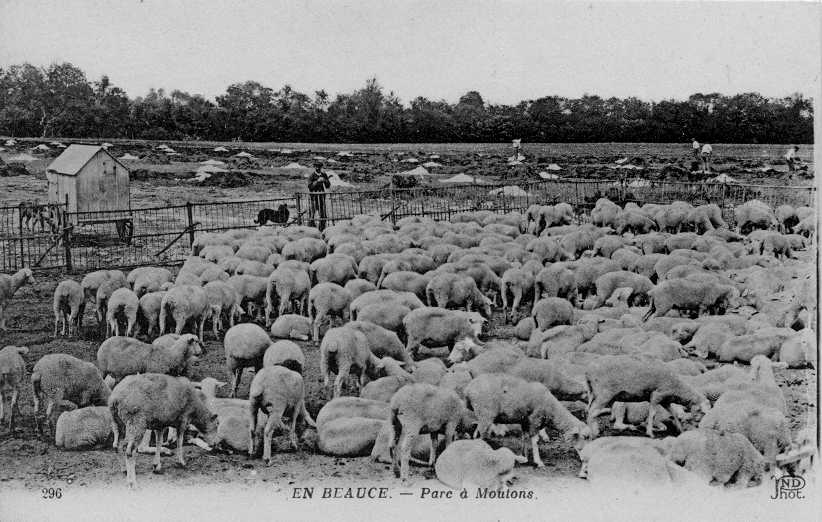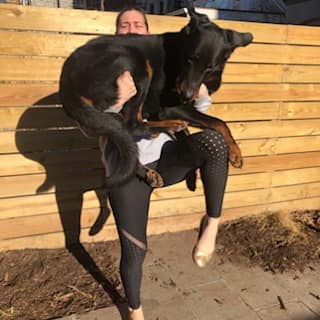Tag: 2020 Issue 3 (May/June)
Restricted content

The Beauceron Bulletin
The Beauceron Bulletin
Volume XXIV Issue 3
May/June 2020
Inside This Issue:
- The President’s Page – June 2020
- BOD Minutes
- New AKC Titles
- New Member Applications – June 2020
- New Members
- Are You on Facebook?
- Touch of French
- Wags and Brags
- Sports et Loisirs: Travail du Flair
- Odor Dialogues: Learning to Listen Through Scentwork
- Why Be A Club Member
- ABC Herding Clinic
- Canine Genetic Testing
- Merle Genetics: An Introduction
- AKC News
- AKC 2020 Rally National Championship
- Pick of the Litter
- Pick of the Litter
- Pick of the Litter
Restricted content
Restricted content
Merle Genetics: An Introduction
Lauren Trathen & Diana Densmore
Unlike many other well-established breeds that have genetic markers and recommended genetic testing to be completed, very little testing is done or encouraged for the Beauceron. A lot of topics of discussion over the years have surrounded our “harlequin” Beaucerons, their white marks, the tweed (oddly brownish spots), and their fading aspect. First and foremost, you must understand that when we use the term harlequin it is only because of its French origin and not because their color is due to the harlequin gene; harlequin Beaucerons are merle genetically speaking. The merle genetics in dogs are still being studied and researched by passionate leaders in the field, one of which is Mary Langevin. She is a well-known Catahoula breeder who quite literally wrote “the book” on merle, and is backed by the testing results she discovered in partnership with Tilia Labs in the Czech Republic.
Merle testing is one way that both owners and breeders can use genetic data to make better informed decisions and be able to educate others who come into our breed after us. Tilia Labs is the only analyst, currently, to identify and report on all seven alleles associated with merle. While it may seem that merle testing for black and rust dogs is not applicable, that is not the case. Most of us who have brushed the surface of merle genetics are aware there is M (Merle Dominant allele) and m (non-merle allele), but there are many more variations which can be more readily seen in other breed such as Australian Shepherds and Catahoulas. Beaucerons do NOT exclusively carry regular merle and non-merle; that is not how this works. Mc, Mh, Ma, Mc+, etc., are all variations of the merle alleles that can come with having merle in our breed.
Diana Densmore obtained permission from Mary Langevin to share (reprint) this article on understanding merle genetics that was originally written for the Australian Shepherd breed and to encourage all Beauceron owners, particularly those with “harlequins” but also black and rust dogs to be tested through Tilia Labs and to share those results with the breed community.
Mary Langevin – Unraveling the Mysteries of Merle
Are You on Facebook?
Just a quick check in to ensure that everyone who is on Facebook and is a club member is aware that there is a group for members only! It’s called American Beauceron Club – Members Only. To join, please use the following link:
Your membership status will be verified before your request is accepted.
Restricted content

Why be a Club Member?
An Opinion Piece by Robyn Salley
I have been a Beauceron owner for 3 years, and a member of the Beauceron community for over 5 years now. There’s a constant theme I see in our community – desire for control. We want to control who breeds, who joins our community, which dogs win in each venue, what tests are needed, what dogs are rescued…the list goes on and on. In this article, I will discuss how being a member of the American Beauceron Club can be a productive outlet in that pursuit of control and a measured approach for not overstepping reasonable limits to that control.

A bit snarky, don’t you think? I was hoping to catch your attention with this excerpt. As we move to a newsletter that is easier to generate from the website instead of expecting our volunteers to spend hours and hours on end formatting a pdf (Debbie Baker – we feel your pain on this!), we’re also able to track when people are actually clicking through the “Read More” to finish reading the full article. The numbers, unfortunately, are disappointing. A major benefit to joining the club is access to the newsletter which is intended to be a repository of information about the club (minutes, letters from our officers, treasurer updates, titles, etc.) as well as a source of valuable information about the breed (articles carefully curated from the membership). If people aren’t reading the newsletter, then why have they joined the club?
That brings me back to the idea of control. Now I know Di Brown is sitting off to the side sighing loudly at the structure of this article, but I know she’ll bear with me as I struggle to make my point.
The club is the mechanism by which Beauceron community is organized to influence the general public and liaise with the American Kennel Club (which, while AKC is not the only kennel club in the US, it is the main one that Beauceron owners utilize for titling). The club is who can recommend changes to the breed standard, health testing, and breed education.
The club is our organized voice. The club is our mechanism for control.
As of late, Facebook has been our (dis)organized voice. With the rise of social media, the ability to organize and promote voices has become much easier through ad hoc Facebook groups that reach beyond just a niche community. I know there was a Yahoo! Groups presence before, but the connectivity to the rest of “DogBook” and the general Facebook public does not really have a parallel through that medium.
Now before anyone starts to get their hackles up, I’m not going to bash Beauceron owners and their Facebook presences. In fact, I am impressed with how our community has utilized social media. We are making our voices heard. Our networks are so wide! There’s connectivity across continents that is amazing. The ease at which people, like I did years ago, can learn about the breed and begin to contribute positively is fantastic.
My argument, though, is that we stopped using our club in favor of Facebook which has led us down the route of exerting control over everything instead of focusing our efforts on the areas where we do have systematic power to make changes.
Don’t get me wrong, we need both.
We need the community outreach that social media can provide. We need the groups to be able to quickly and easily have important discussions. We need to build our communities in a way that social media platforms facilitate by the nature of their design. But, beyond that, we still need to utilize our club to take all of these ideas and get them approved by formal processes and get them embedded in AKC (and other kennel clubs we choose to associate with).
To do that, we need to take all of those leadership and organizational skills that we see displayed so beautifully through groups such as Beaucerons in North American, Beaucerons Worldwide, Beaucerons in Obedience & Rally, Beauceron Breed Standard Review, et al. We have the skills in our community to manage people and ideas! And, guess what, they do it for free!!!
We should leverage that skillset in our board – moving from a model that is constantly putting out flames to a model that sets goals for each committee with deadlines and follows up on them. Within our committees, we have chairs who should provide the board and the membership with regular updates on the good work that they’re all doing. Within our membership, we should have outreach programs to make sure that each voice is heard and every idea is accounted for.
If we harness that energy, we can harness the ability to make changes to critical concerns from the club in a timely manner (Are elbows required? Are they not required?). We can discuss every rule in our Code of Ethics with the level of criticality we discuss the rules for a Facebook group. We can address membership complaints with the same gusto we do when someone slides into our PMs to say there’s a potential person trying to sell puppies through one of our groups.
We just have to get organized and recognize the difference between social media and a non-profit club. That gives us our community and it gives us our focused control.
I commend all of our volunteers – none of these jobs are easy, within the club or outside of it. I just want us to all take a step back and look at our club. What can we do to use the club to better the breed in the ways that we all so desperately want to?